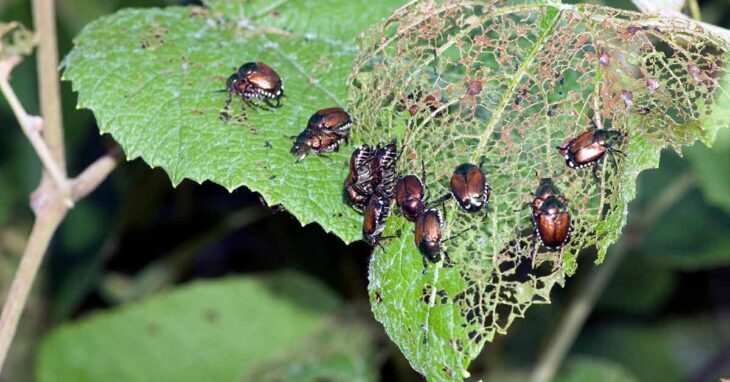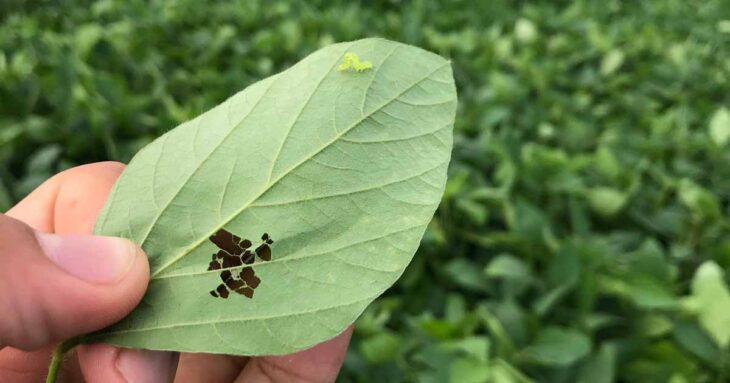The phrase “pest species” refers to every animal that is harmful to people and is classified as such. Pests are described as any creature that has a detrimental impact on the accessibility, quality, or value of a human resource in any way. The relevance of an organism in its natural surroundings has no bearing on whether or not it is classified as a “major inconvenience” species. Plant pests, which are sometimes known as weeds, are involved in the elimination of non-native invasive plants, which must be dealt with. Learn more about insect control and its strategies by reading this comprehensive guide, which is jam-packed with important information and resources.
In one place, a pest may be considered a nuisance, whilst in another, it may not be. It is possible for an organism to become a pest when natural regulatory systems fail to keep it in control. Two methods of doing this are via the introduction of foreign species or through human acts that reduce or eliminate the efficacy of their natural enemies. Organisms may swiftly grow in number to the level where they represent a danger and become pests if their population is not properly controlled. It is not necessarily necessary for there to be a large number of them to cause a problem. Because of its modest egg-laying comparison to other insects, this codling moth seldom generates more than one generational each year when contrasted to other insects. A notable agricultural product, on either hand, is the codling moth, which is known for the harm it does to apples.
Contents
Is There a Term for What You Do in Pest Management?

Source: gardentech.com
Pest control, then, is a strategy for bringing populations down to a manageable level. An acceptable threshold is usually defined as a point at which subsequent applications of its techniques are no longer profitable if they are applied at all. In most cases, eradication is not a possibility.
Methods of Pest Control Management
Chemical, biological, cultural, physical/mechanical, and genetic control methods are only a few of the many options available.
-
Chemical Method
Examples of non-selective broad-spectrum chemicals include biocides and inorganic compounds (such as those used in insecticides, herbicides, and rodenticides), which are also known as non-selective broad-spectrum chemicals. Pesticides may include nerve poisons and growth regulators/inhibitors, which are toxic to both insects and mammals. The use of chemicals to reduce its abundance may also be accomplished in a more indirect manner, such as the production of pheromones that disturb breeding behavior and interfere with mating.
Natural enemies and other non-target organisms are in danger of exposure to chemical pesticide residue since it may pollute water, soil, and air and can also be biomagnified in food chains. When pesticides are used in ways that were not intended, they may result in the reemergence of a target pest, secondary outbreaks caused by the loss of natural enemies, and the development of pesticide resistance.
-
Biological Method

Source: lake-mary-pest-control.eklablog.com
It’s not uncommon for species to become pests because of methods like those described in the Chemicals or Culture sections that reduce the effectiveness of natural enemies. Parasitoids (such as parasites, illnesses, and parasitoids) may be used to regulate the population of an organism. The first priority should be to protect or enhance the efficacy of natural enemies. Biological control is a method of controlling non-native pests that involves introducing natural enemies from their original place.
Before importing organisms, certain safeguards must be put in place to ensure that they do not endanger non-target species. Inoculative (parasitoids are introduced early in the season) or invasive natural enemies may be used for biological control as well.
-
Cultural Method
When humans interfere with natural adversaries, their efficacy might be reduced. Broad-spectrum insecticides kill both natural enemies and the targeted pest species, depending on the kind of crop plant, the environment of the crop, and the farming techniques. Inadvertently, modern crop types might generate favorable circumstances for them. Natural enemies may not be able to thrive in a homogeneous environment that is ideal for them because of the lack of diversity in crops.
Natural enemies are also prevented from lingering in annual crops by numerous harvesting procedures. Examples of cultural practices that encourage natural enemies and dissuade pest persistence include farming to make it much more difficult for insects to find a host plant, newly planted trap crops that entice they’re away from harvest crops, and delaying planting periods to coincide with times when they have emerged and died off for the season.
-
Physical Method

Source: gardenerspath.com
There are a variety of methods for preventing pests from invading an area. Removing unhealthy or contaminated materials, using animal traps, and using sticky cards for insects are just some of the ways to get rid of them. It is possible to prevent damage by using physical barriers like fences, mulch, and huge tree guards to keep bugs out of the area.
-
Genetic Method
There is a lack of public awareness or access to genetic modification as a means of reducing pest damage. Using the insect itself to raise death rates is a kind of genetic control known as “autocide.” After mating her females, sterile eggs are produced by sterilized males. This is a costly technique with several drawbacks, including the possibility that imported sterile males may not be able to compete effectively with naturally existing fertile males.
Another method of limiting effects is to use genetic modification to generate pest-resistant plant strains. As a result, genetic alteration research is prohibitively expensive, as well as raising ethical and environmental concerns that cannot be simply resolved. The average populace cannot control their genetics via genetic modification.
Final Verdict

Source: pantherpestcontrol.co.uk
Pest management practices such as integrated pest management (IPM) are becoming more popular. For the most effective and least harmful method, IPM looks at the environment as a whole and considers a well-balanced combination of the control strategies previously discussed. Using chemical control methods as a very last resort in combination with other ways is the last resort and should only be utilized in extreme cases. In order to ensure long-term network viability, an IPM approach should remove the need for additional, costly follow-up maintenance in the future.
